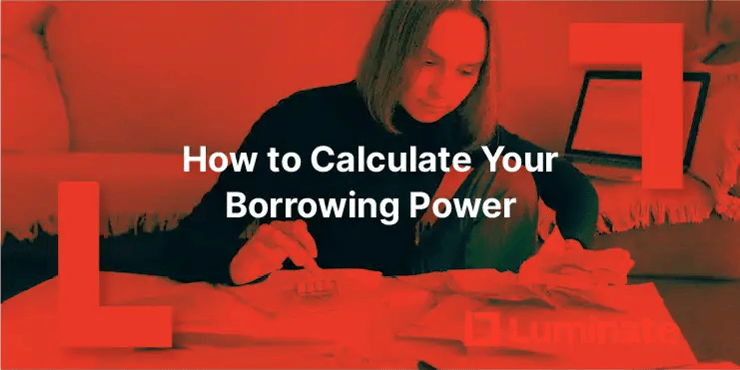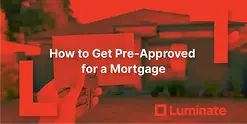How to Calculate Your Borrowing Power NZ 2025
 By
Trent Bradley
·
11 minute read
By
Trent Bradley
·
11 minute read

Quick Answer: New Zealand banks typically approve loans of 5-6 times your gross annual income, adjusted for debts and expenses. Calculate your borrowing power by multiplying your annual income by 5.5, then subtracting debt obligations and factoring in your deposit. Banks stress test at 2-3% above current rates to ensure you can afford repayments if interest rates rise.
Table of Contents
- What Is Borrowing Power?
- The 6 Key Factors That Determine Your Borrowing Power
- Quick Borrowing Power Estimates: Real NZ Examples
- How to Calculate Your Borrowing Power (Simple Method)
- How to Increase Your Borrowing Power
- Why Different Lenders Give Different Borrowing Amounts
- Common Borrowing Power Mistakes to Avoid
- Borrowing Power FAQs
- Why Work With a Mortgage Adviser?
- Final Thoughts
Key Takeaways
- NZ banks typically lend 5-6 times your gross annual income—multiply your household income by 5.5 for a conservative estimate, then subtract existing debts and adjust for expenses
- Credit cards devastate borrowing capacity even at zero balance—a $10,000 limit can reduce what you can borrow by $50,000-$60,000, making closing unused cards one of the fastest ways to increase approval amounts
- Stress testing reduces your maximum by 15-25%—banks assess affordability at 8-9% interest (or current rate +2.5-3%), not today's rates, so calculate repayments at higher rates before committing
- Different lenders give vastly different approvals—you might qualify for $650,000 at one bank and $720,000 at another due to varying expense benchmarks, debt treatment, and risk appetites
- Self-employed borrowers face conservative assessment—banks typically assess at 80% of declared income and require 2+ years of financial statements, plus often need larger deposits of 15-20%
- Each dependent child costs $30,000-50,000 in borrowing power—lenders add $150-250/week to assessed living expenses per child, significantly reducing maximum loan amounts for families
If you're thinking about buying your first home in New Zealand, one of the biggest questions is, "How much can I actually borrow?"
Your borrowing power is the amount a lender is willing to let you borrow based on your financial position. It's not a fixed number, and it can vary widely between banks, non-bank lenders, and mortgage products. Knowing how it's calculated can help you plan more effectively, make confident decisions, and avoid falling in love with a property that's out of reach.
At Luminate Financial Group, we help first-home buyers across Auckland, Wellington, Christchurch, and throughout New Zealand understand and improve their borrowing capacity so they can buy smart, not stretched. In this guide, we break down the key factors lenders look at and how you can estimate what you might qualify for.
What Is Borrowing Power?
Borrowing power (also called borrowing capacity or lending capacity) is the total loan amount a bank or lender is likely to approve based on your income, expenses, debts, deposit, and overall financial profile. It sets the upper limit of what you can spend on a property and is the foundation of your home-buying budget.
New Zealand banks are regulated by the Reserve Bank of New Zealand (RBNZ) and must apply responsible lending rules under the Credit Contracts and Consumer Finance Act (CCCFA). This means they don't just lend based on income alone. They assess your ability to repay the loan comfortably, even if interest rates rise significantly.
Key principle: Borrowing power is not the same as what you should borrow. Just because a bank approves you for $800,000 doesn't mean borrowing that full amount is wise for your financial wellbeing.
The 6 Key Factors That Determine Your Borrowing Power
1. Your Income
Lenders assess your gross income (before tax), including all verified sources:
Employment income:
- Base salary or wages (weighted most heavily)
- Overtime (if regular and consistent over 12+ months)
- Bonuses and commissions (averaged over 1-2 years)
- Allowances (car, housing, etc. if guaranteed)
Other income sources:
- Rental income from investment properties (with deductions for expenses and vacancy)
- Flatmate or boarder income (typically $200-300/week accepted by some lenders)
- Self-employed earnings (requires 2+ years tax returns, often assessed at 80%)
- Government payments (Working for Families, childcare subsidies if ongoing)
- Investment returns (dividends, interest if consistent)
Joint applications: If you're applying jointly with a partner or co-borrower, both incomes are combined. Some banks also accept income from parents acting as guarantors.
Income verification required: Payslips (typically 3 months), employment contract, tax summaries, or financial statements for self-employed applicants.
2. Your Living Expenses
Banks use two methods to assess expenses:
- Actual expenses from your bank statements (last 3-6 months)
- Household Expenditure Measure (HEM) - a standardized benchmark
They use whichever is higher to ensure conservative assessment.
Fixed expenses assessed:
- Current rent (if continuing after purchase)
- Insurance premiums (car, health, life)
- Subscriptions and memberships (gym, streaming, phone)
- Transport costs (fuel, public transport, vehicle running costs)
- School or childcare fees
- Utilities (power, water, internet)
- Groceries and household items
- Healthcare and medication
What raises red flags:
- Frequent overdrafts or dishonored payments
- High discretionary spending (takeaways, alcohol, entertainment)
- Gambling transactions
- Excessive cash withdrawals (harder to track)
Banks typically add a buffer of 10-20% above your stated expenses to account for lifestyle inflation and unexpected costs.
3. Your Existing Debts
Any existing liabilities significantly reduce your borrowing power. These debts are assessed at their maximum impact, not current balances.
Credit cards: Assessed at full limit, not current balance
- $10,000 limit = approximately $50,000-60,000 reduction in borrowing power
- Zero balance doesn't matter - the available credit counts against you
Loans and finance:
- Car loans or personal loans (monthly payment × remaining term)
- Student loans (12% of gross income deducted automatically)
- Buy Now Pay Later services (Afterpay, Laybuy, Humm - even small limits count)
- Store cards and hire purchase agreements
- Overdraft facilities
Impact example:
- $15,000 car loan at $400/month = -$80,000 borrowing power
- $10,000 credit card limit = -$55,000 borrowing power
- Total reduction: -$135,000
Strategy: Pay off or close unused credit facilities 3-6 months before applying for a mortgage to maximize borrowing power.
4. Your Deposit Size
Your deposit affects both approval likelihood and which lenders you can access.
20% deposit (gold standard):
- Access to all major banks
- Best interest rates available
- No low equity margins or fees
- Stronger negotiating position
10-15% deposit:
- Limited to specific lenders
- Low equity margins add 0.25-0.75% to interest rate
- Stricter income and expense assessment
- May require mortgage insurance
5% deposit:
- Only through Kāinga Ora First Home Loan scheme
- Income caps apply ($95k individual / $150k couple)
- Regional house price caps
- Participating lenders only
Example calculation:
- $600,000 property
- 20% deposit = $120,000 (borrow $480,000)
- 10% deposit = $60,000 (borrow $540,000)
The larger your deposit, the less you need to borrow, which can also mean lower repayments and faster equity building.
5. Loan Term and Structure
Standard loan terms in New Zealand:
- 25 years (balanced repayments and interest cost)
- 30 years (lower repayments, higher total interest)
- 20 years (higher repayments, significant interest savings)
How term affects borrowing power:
Longer terms reduce monthly repayments, which can increase the amount banks will lend. However, you pay substantially more interest over time.
$500,000 loan at 6.5% interest:
- 20 years: $890/week, total interest $425,000
- 25 years: $785/week, total interest $545,000
- 30 years: $730/week, total interest $670,000
Loan structure types:
- Principal and interest (table loan): Standard for first-home buyers, reduces loan balance
- Interest-only: Lower repayments but no equity building, rarely used for owner-occupied homes
- Revolving credit: Flexible but requires strong budgeting discipline
Most first-home buyers in New Zealand choose principal and interest repayments over a 25-30 year term.
6. Interest Rate Stress Testing
Banks don't assess your affordability at current market rates. They apply stress testing to ensure you could afford repayments if rates increase.
Stress test methodology:
- Current rate + 2.5% to 3%
- Or a minimum test rate (often 8-9%)
- Whichever is higher
Example:
- Current mortgage rate: 6.5%
- Stress test rate: 9% (6.5% + 2.5%)
- $600,000 loan tested at 9% = $1,105/week
- Must prove you can afford this higher payment
This is why you might expect to borrow $700,000 based on income, but the bank only approves $600,000 - the stress test reduces your capacity.
Purpose of stress testing:
- Protects borrowers from payment shock if rates rise
- Ensures responsible lending under CCCFA requirements
- Reduces risk of mortgage defaults
- Creates buffer for financial uncertainty
Quick Borrowing Power Estimates: Real NZ Examples
Here are realistic scenarios showing what different income levels can typically borrow in New Zealand:
Scenario 1: Single First-Home Buyer
Financial profile:
- Annual income: $85,000
- No major debts (closed credit cards)
- $80,000 deposit (savings + KiwiSaver + HomeStart Grant)
- Modest spending habits ($3,500/month expenses)
- Good credit history
Estimated borrowing power: $450,000 to $500,000
Likely purchase range: $530,000 to $580,000
Regional suitability: Christchurch, Hamilton, Dunedin, regional centers
Scenario 2: Couple, No Children
Financial profile:
- Combined income: $150,000
- One credit card ($10,000 limit) and car loan ($7,000 remaining)
- $100,000 deposit
- Shared expenses ($5,500/month)
- Stable employment (both employed 2+ years)
Estimated borrowing power: $650,000 to $750,000
Likely purchase range: $750,000 to $850,000
Regional suitability: Wellington suburbs, outer Auckland, Tauranga
Scenario 3: Couple with Child, High Income
Financial profile:
- Combined income: $180,000
- Student loan and small personal loan ($350/month)
- $150,000 deposit
- One child (increased living costs)
- Above-average expenses ($6,800/month)
Estimated borrowing power: $750,000 to $850,000
Likely purchase range: $900,000 to $1,000,000
Regional suitability: Auckland (entry-level suburbs), Wellington
Scenario 4: Self-Employed Buyer
Financial profile:
- Self-employed income: $95,000 (averaged, assessed at 80% = $76,000)
- No debts (conservative financial management)
- $65,000 deposit
- Variable income pattern
- 3 years financial statements
Estimated borrowing power: $380,000 to $450,000
Likely purchase range: $445,000 to $515,000
Regional suitability: Provincial towns, smaller regional centers
Important: These are estimates only. Your actual borrowing power depends on the specific lender, current RBNZ policies, your complete financial profile, and how your application is structured and presented.
How to Calculate Your Borrowing Power (Simple Method)
Step 1: Start with gross annual income
Example: $130,000
Step 2: Multiply by 5.5 (conservative estimate)
$130,000 × 5.5 = $715,000
Step 3: Subtract debt impact
- Credit card $10k limit: -$55,000
- Car loan remaining: -$15,000
- Total debt impact: -$70,000
Step 4: Adjust for expenses
If your expenses are higher than average, reduce by 10-15%:
$715,000 - $70,000 = $645,000
High expenses adjustment: -$65,000
Estimated borrowing power: $580,000
Step 5: Add your deposit
$580,000 + $120,000 deposit = $700,000 purchase budget
Step 6: Apply stress test reality check
Can you afford repayments at 8-9% interest?
$580,000 at 9% over 30 years = $1,075/week
If this exceeds 35-40% of your take-home pay, reduce your target borrowing.
How to Increase Your Borrowing Power
If you're short of the loan amount you need, these strategies can improve your position:
Short-term improvements (1-3 months)
1. Reduce or close unused credit cards
- Each $10,000 limit removed adds $50,000+ borrowing power
- Keep one low-limit card for emergencies only
- Request limit reductions on remaining cards
2. Pay down existing loans
- Focus on high-interest debts first
- Even $5,000 reduction can add $10,000-15,000 borrowing power
- Consider consolidating multiple small debts
3. Clean up bank statement history
- Reduce discretionary spending for 3-6 months before applying
- Avoid overdrafts, dishonors, or late payments
- Show consistent savings patterns
Medium-term improvements (3-6 months)
4. Save a larger deposit
- Every $10,000 extra deposit reduces borrowing needed
- Aim for 20% to access best rates and all lenders
- Use KiwiSaver withdrawal and HomeStart Grant
5. Increase income
- Request pay rise or promotion
- Take on additional hours or second job
- Establish side income (must be consistent for 6+ months)
6. Improve credit score
- Pay all bills on time for 6+ months minimum
- Register on electoral roll
- Dispute any errors on credit file
- Avoid multiple credit applications
Long-term strategies (6-12 months)
7. Add a co-borrower
- Partner, family member as joint applicant
- Combines income and shares debt obligations
- Both parties equally liable for repayments
8. Consider a boarder or flatmate
- Some lenders accept $200-300/week income
- Must have formal tenancy agreement
- Shows debt-servicing capacity
9. Restructure self-employed income
- Work with accountant to optimize declared income
- Build consistent income history over 2+ years
- Maintain clean separation of business and personal finances
10. Use a guarantor
- Parent or family member guarantees portion of loan
- Their income and assets considered
- Reduces lender's risk, may increase approval amount
Priority actions: A mortgage adviser can help you identify which improvements will have the biggest impact on your specific situation.
Why Different Lenders Give Different Borrowing Amounts
You might get approved for $650,000 at one bank and $720,000 at another. This happens because:
Assessment differences:
- Living expense benchmarks vary by lender
- Some accept boarder income, others don't
- Different stress test rates (some test higher than others)
- Varying treatment of bonuses and overtime
- Different debt-to-income ratio limits
Risk appetite differences:
- Major banks tend to be more conservative
- Non-bank lenders may be more flexible
- Some specialize in self-employed or complex incomes
- Credit unions may have different criteria
Product-specific criteria:
- First-home buyer products may be more lenient
- Low-deposit lending has stricter requirements
- Investment property criteria differs from owner-occupied
Policy changes:
- RBNZ regulations affect all banks but implementation varies
- Economic conditions influence lending appetite
- Each bank adjusts policies independently
This is why working with a mortgage adviser matters: We compare your application across 15+ lenders to find who will lend you the most on the best terms, rather than just applying to your current bank.
Common Borrowing Power Mistakes to Avoid
Mistake 1: Relying on online calculators only
Online calculators give rough estimates but don't account for your specific debts, credit history, or lender-specific criteria. They often overestimate what you'll actually be approved for.
Mistake 2: Applying at only one bank
Your current bank may not offer the best borrowing amount or rates. Different lenders assess applications differently.
Mistake 3: Not addressing debt before applying
Waiting until after you've found a property to close credit cards or pay down loans. Do this 3-6 months beforehand for maximum impact.
Mistake 4: Assuming maximum approval is sensible
Banks approve based on income and stress tests, not on what creates a comfortable lifestyle for you. Just because you're approved for $750,000 doesn't mean you should borrow that much.
Mistake 5: Ignoring the stress test
Calculating affordability at current rates without considering what happens if rates rise 2-3%. This leads to financial stress when rates increase.
Mistake 6: Poor timing of major purchases
Buying a new car or taking on debt right before applying for a mortgage can reduce your borrowing power by $50,000-100,000+.
Mistake 7: Not checking your credit file
Errors, old defaults, or identity theft on your credit report can derail applications. Check your credit file 3-6 months before applying and dispute any errors.
Borrowing Power FAQs
How accurate are online borrowing calculators?
Online calculators provide rough estimates but typically overestimate by 10-20% because they don't account for your actual debts, credit history, spending patterns, or lender-specific criteria. Use them as a starting point only.
Can I borrow more if I have a larger deposit?
Yes, in two ways: you need to borrow less for the same property price, and banks view you as lower risk, potentially offering better rates and more favorable assessment of your income.
Does my credit score affect borrowing power?
Yes significantly. Poor credit history can reduce borrowing power by 20-30% or lead to decline. Good credit history (no defaults, consistent payments) can increase approved amounts and access to better rates.
How long does it take to improve my borrowing power?
Quick fixes (closing credit cards) can improve power within 1-2 months. Building savings, paying down debt, or improving credit history typically takes 3-6 months to show results.
Do all banks use the same borrowing power formula?
No, each lender has different policies, living expense benchmarks, stress test rates, and risk appetites. This is why you might be approved for different amounts at different banks.
Can I use my KiwiSaver to increase borrowing power?
KiwiSaver helps as a deposit source (reducing amount you need to borrow), but doesn't directly increase how much banks will lend. However, a larger deposit from KiwiSaver can improve your loan-to-value ratio and access to better lending terms.
What if I'm self-employed?
Self-employed applicants typically need 2+ years of financial statements and are often assessed at 80% of declared income. You may need a larger deposit (15-20%) and will likely have reduced borrowing power compared to PAYE employees with the same stated income.
How much do children reduce borrowing power?
Each dependent child increases your assessed living expenses by approximately $150-250/week, which can reduce borrowing power by $30,000-50,000 per child depending on the lender.
How much does a credit card limit reduce borrowing power?
A $10,000 credit card limit can reduce your borrowing power by approximately $50,000-60,000, even if the card has a zero balance. Banks assess credit cards at their full limit, not the current balance. Closing unused credit cards is one of the fastest ways to increase borrowing capacity.
What is stress testing and how does it affect what I can borrow?
Stress testing is when New Zealand banks assess your loan affordability at an interest rate 2.5-3% higher than current rates, or at a minimum test rate of 8-9%. This ensures you could still afford repayments if interest rates rise. Stress testing typically reduces borrowing power by 15-25% compared to assessments at current rates.
Why Work With a Mortgage Adviser?
Each New Zealand lender uses a slightly different formula to assess borrowing power. Some will count flatmate income. Others might ignore it. Some will use a higher living expense buffer than others. And non-bank lenders may be more flexible on credit history or self-employed income.
How Luminate Financial Group helps:
We compare across 15+ lenders to find who will lend you the most on the best terms, rather than just one bank's assessment.
We structure your application strategically to present your income, expenses, and debts in the best possible light while remaining honest and compliant.
We identify improvements that will have the biggest impact on your borrowing power, saving you months of guesswork.
We explain the real numbers so you understand not just what you can borrow, but what you should borrow for long-term financial health.
We save you time and stress by handling lender negotiations, documentation, and application processes.
Final Thoughts
Your borrowing power is the foundation of your first-home journey. Understanding how it's calculated and how you can influence it gives you control over your purchase price, loan strategy, and financial future.
The gap between what banks will lend you and what you should borrow can be significant. Maximum borrowing power isn't a target - it's a ceiling. Smart home buyers borrow below their maximum to allow for rate rises, life changes, and financial flexibility.
Don't rely on guesswork or online calculators that only tell half the story. Work with a mortgage adviser who can help you make sense of the numbers and give you a clear, personalized plan based on your specific situation and goals.
Ready to know exactly how much you can borrow?
Book a free First-Home Strategy Session with Luminate Financial Group. We'll assess your income, deposit, debts, and lifestyle, and show you what multiple lenders are likely to approve - all without obligation.
📞 Call 0800 333 400
📧 Email askus@luminate.co.nz
🌐 Visit luminate.co.nz
Luminate Financial Group - helping first-home buyers across Auckland, Wellington, Christchurch, and throughout New Zealand since 1998.

Trent Bradley
Trent Bradley is a New Zealand financial advisor specializing in property-backed finance and investment consulting. With over 26 years of experience running his mortgage broking business, he has helped wholesale investors access high-yield property-backed loan opportunities. For the past 12 years, Trent has led Luminate Finance, a New Zealand finance company dedicated to connecting investors with secure property investment solutions.


























